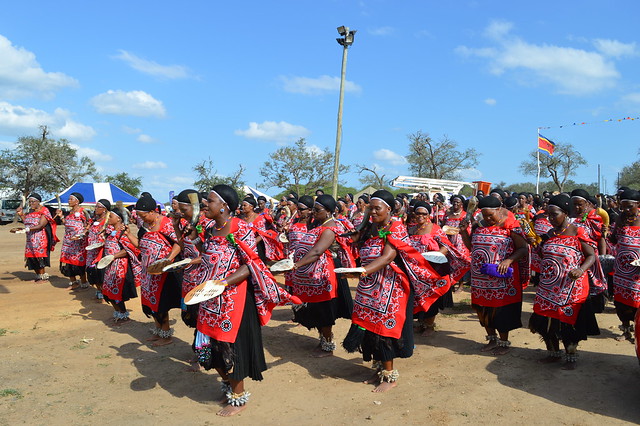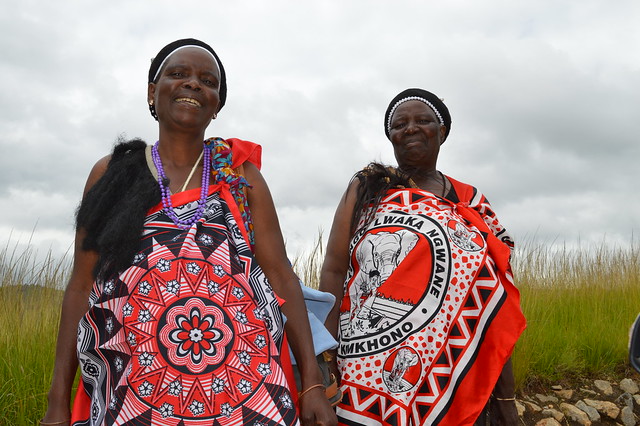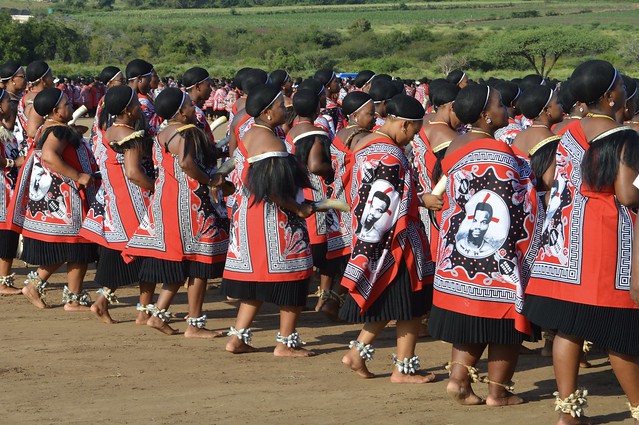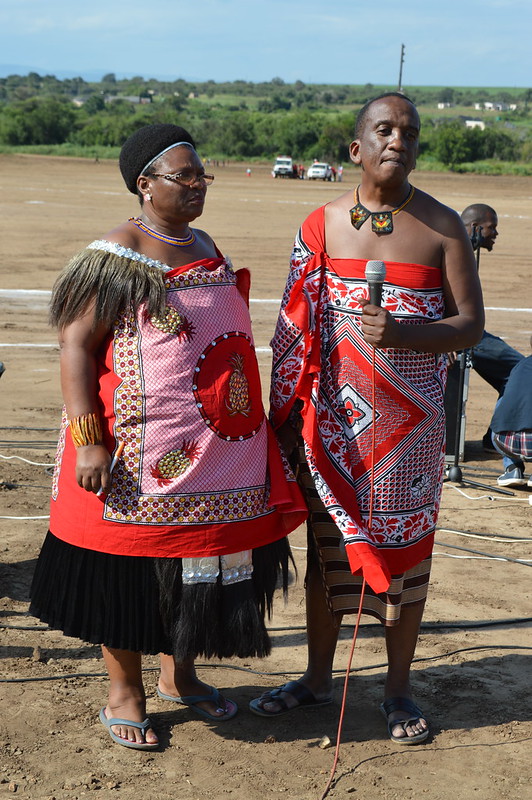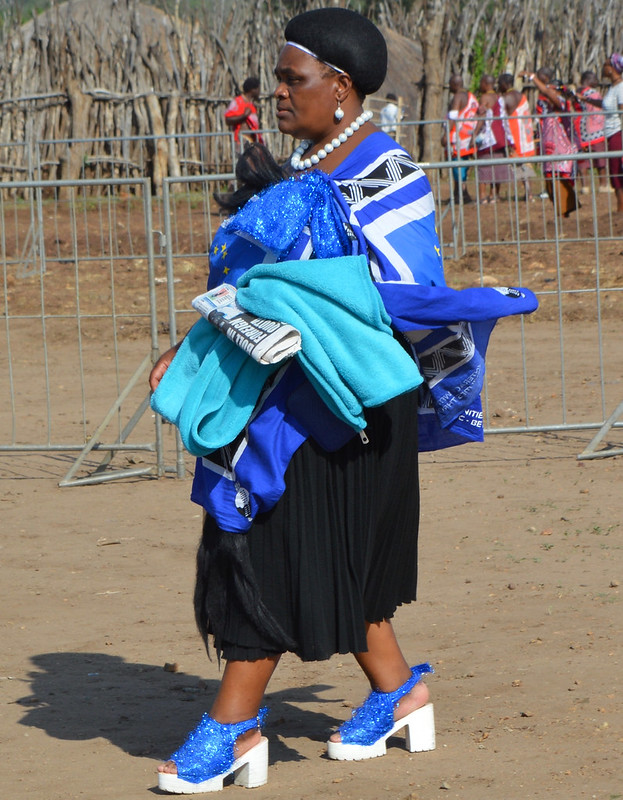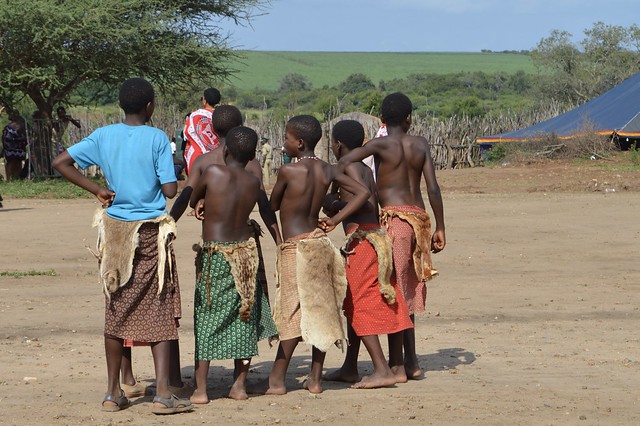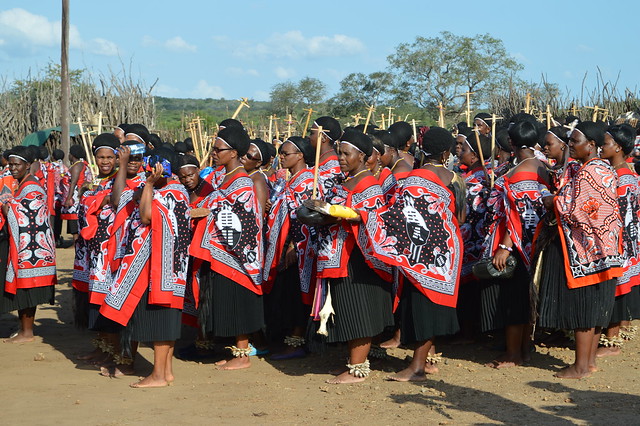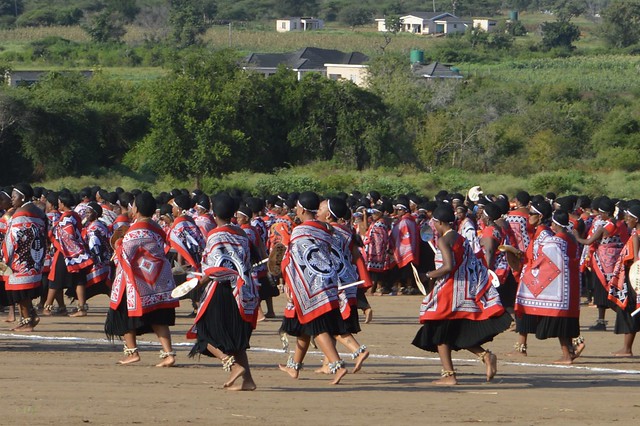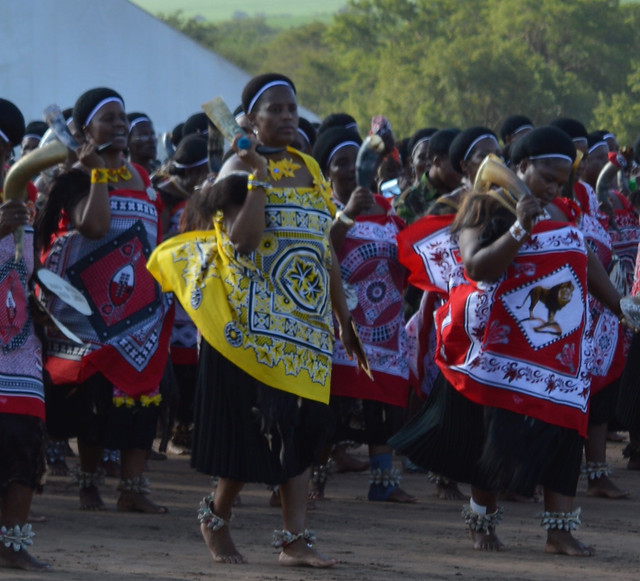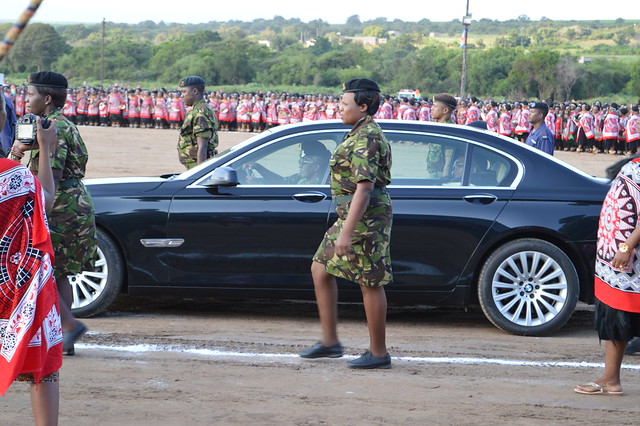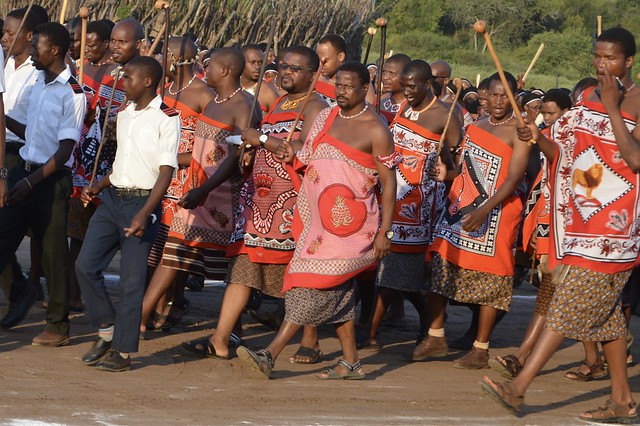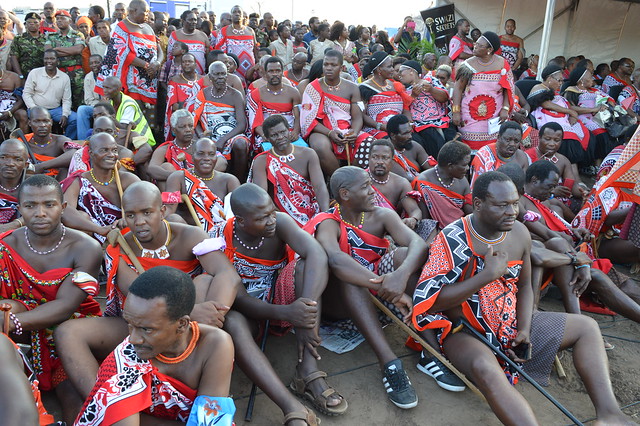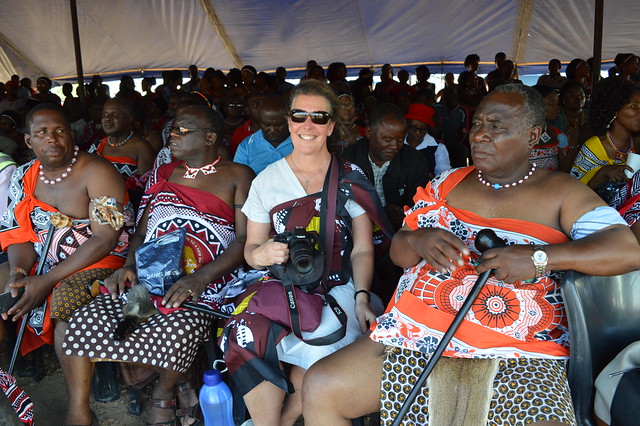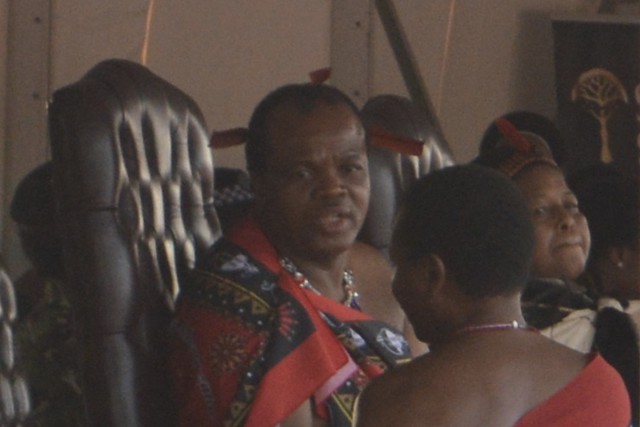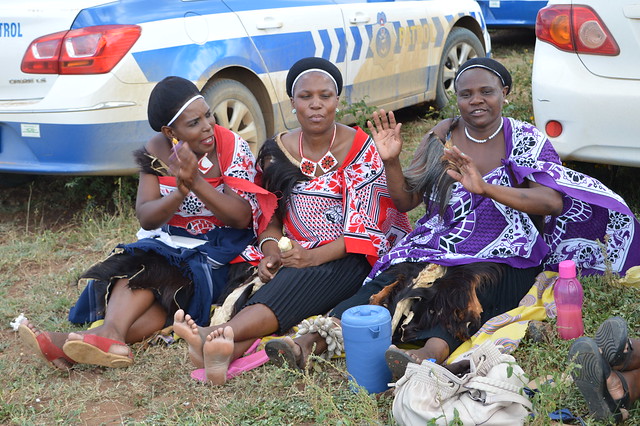Petra Shepherd sways her way to Swaziland to experience its annual Marula Festival.
Swaziland, South Africa’s postage sized neighbour is one of the few remaining monarchies in Africa and embraces and upholds its own unique and ancient traditions. Both the monarchy and the people of Swaziland actively maintain and preserve a remarkable cultural heritage, experiences here are the real deal probably unmatched anywhere else in Africa. It’s a nation that revels in the spectacle of music, elaborate costume and dance with the best place to experience all three at one of the many festivals. There’s nothing I like more than a festival (of the cultural kind as opposed to the likes of Glastonbury) and although precise dates are not published in advance, being dependent on the vagaries of ancestral astrology, I was fortunate to be in Swaziland in March this year at the time of The Marula Festival (one of the four largest).
My enthusiasm for the festival started a couple of days beforehand as I spotted a couple of women, in traditional attire at the side of the road in the mountainous region known as the high veld. Excitedly I asked my guide to stop the car, so that we could chat and I could take photos. Both the women and guide were rather bemused, what was so special? It reminded me of a time in Vietnam when I shrieked for the taxi taking me from the airport to stop as I spotted an elegant young girl, in áo dà and conical hat riding a bicycle, thinking it was a rare sight I asked to take a photo. Rounding the corner every other young girl was also riding a bicycle and wearing a conical hat and in Swaziland it seemed that every women in the country was dressed in a red, white and black kanga (a colourful piece of fabric) tied at the shoulder, they were all on the way of the festival.
Local marula fruit is harvested and used to make beer to a traditional recipe which is then presented to the Queen Mother by literally thousands of women in traditional dress singing and dancing. This is a very simplified description of the festival and I found it hard to believe that the one I attended wasn’t even the main one. Each year King Mswati 111 and her Majesty the Indlovukazi the Queen Mother, make their way to various regions of the Kingdom to celebrate the beginning on the Marula Season. The largest of these festivals is held at the royal residence at Ebuhleni, I attended the second event with similar rituals held at His Majesty’s Hlane Royal Residence. Seen by the Swazi nation as much more than a food source, the Marula is regarded as a magical healing ingredient with huge fertility properties and 4 times more vitamin C than oranges.
Seemingly everybody was getting in to the spirit of the occasion. The anchors for the main news channels, dressed appropriately (I can’t see Jennie Bond or Nicholas Witchell doing something similar for our forthcoming royal wedding).
Although one lady in her less than sensible sparkly blue shoes didn’t get the memo !
Young boys wore their “emajobo” loin cloths consisting of two pieces of animal skin.
And all married women had their hair teased into a hairnet in a beehive style called “sicolo”. The women patiently queued up waiting to dance.
Within the arena, the dancing was all remarkably well organised within groups of women, although there were times when the women had to run to catch up with the group ahead of them.
Among the women were various of the King’s wives, distinguished by their yellow kangas. If there’s one thing that everyone knows about Swaziland, it’s the number of wives the King has, currently 15.
However, possibilty the most important women in the King’s life and definitely in that of the Kingdom is the Queen Mother herself who arrived by car.
The King on the other hand, also wearing traditional dress walked into the arena accompanied by his stick wielding bodyguards.
Who then promptly sat down to enjoy the show.
I loved the fact that although visitors and spectators are always welcome at Swaziland’s festivals, no concession was made to tourism. It was all in all a totally unique and authentic experience, although thankfully myself and the few other tourists watching were able to sit in a safe,”VIP” enclosed area amongst the dignitaries (although as friends have pointed out, I’m not sure I was supposed to touch my neighbour’s thigh). There were thankfully clean portaloos on hand and we were able to roam freely to take photographs, even of the King.
The UK is not the only country with a royal celebration to look forward to this year. 2018 promises to be a year full of celebration for this tiny kingdom as they celebrate 50 years of independence and King Mswati 111’s 50th birthday. It wasn’t difficult to know who the King was as his image was imprinted on the back of a vast numbers of the red, white and black kangas.
Some ladies found the dancing just too exhausting and gave up to enjoy a picnic by their cars instead, no different from any outdoor sporting event in the UK. The Marula Festival is basically a spectacular boozefest, a living cultural event that bar the odd wristwatch and mobile phone has hardly changed in two hundred years. I loved it.
To find out more about Swaziland visit thekingdomofswaziland.com.

